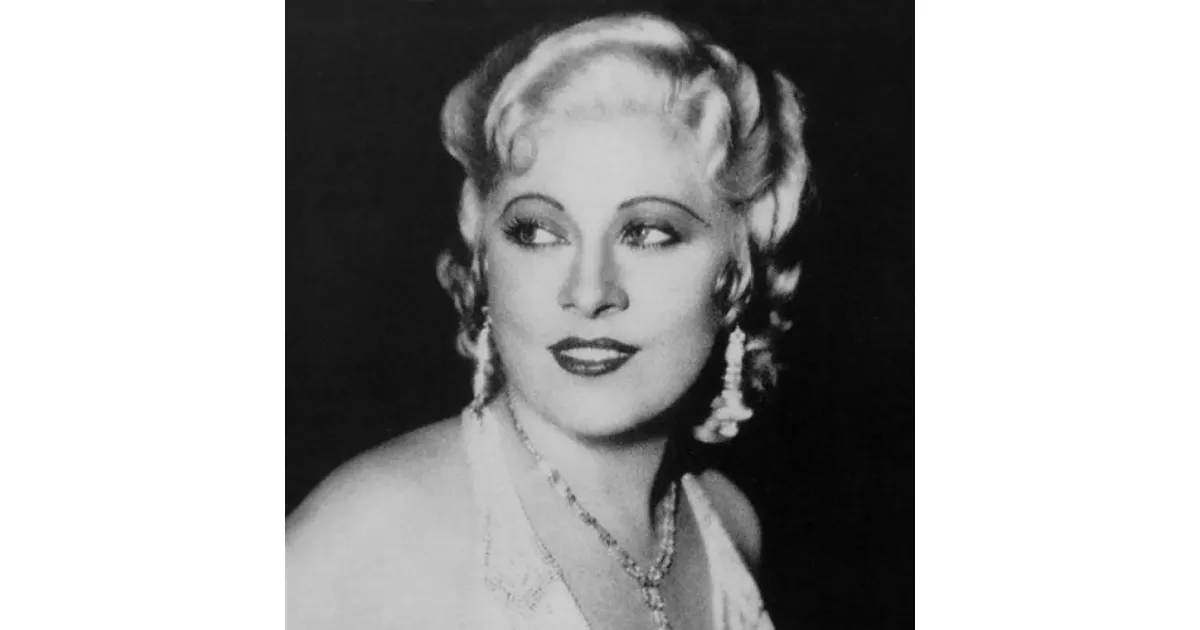Mary Jane "Mae" West, an American actress, singer, comedian, screenwriter, and playwright, enjoyed a career spanning over seven decades. Known as a sex symbol with a husky contralto voice, she was famous for her sexual independence and playful use of double entendres. Starting in vaudeville and on the New York City stage, she later transitioned to a film career in Los Angeles.
1906: Birth of Gorilla Jones
Boxer William "Gorilla" Jones, one of Mae West's boyfriends, was born in 1906.
1907: Vaudeville Debut
Mae West began performing professionally in vaudeville at the age of 14 in 1907 with the Hal Clarendon Stock Company. She had previously used the stage name "Baby Mae" and experimented with different personas.
1909: Meeting Frank Szatkus
Mae West met Frank Szatkus in 1909.
April 11, 1911: Marriage to Frank Szatkus
Mae West married Frank Szatkus (stage name Frank Wallace) on April 11, 1911, at the age of 17. The marriage was kept secret and they never lived together as husband and wife.
1911: Broadway Debut
At the age of 18, Mae West made her Broadway debut in 1911 in a revue called "A La Broadway". She was singled out for praise by a New York Times reviewer.
1912: Winsome Widow Performance
In 1912, Mae West appeared in the opening performance of "A Winsome Widow" as a "baby vamp" character named La Petite Daffy.
August 1913: Meeting Guido Deiro
Mae West met Guido Deiro in August 1913. They had an affair, and possibly married in 1914.
1914: Possible Marriage to Guido Deiro
Mae West may have married Guido Deiro in 1914, as alleged by Deiro's son.
1916: Relationship with James Timony
Mae West began a relationship with James Timony, her manager, in 1916.
1918: Breakthrough in "Sometime"
In 1918, Mae West got her break in the Shubert Brothers revue "Sometime", performing opposite Ed Wynn. Her character Mayme danced the shimmy, and her photograph appeared on the sheet music for the song "Ev'rybody Shimmies Now".
1923: Birth of Chester Rybinski (Paul Novak)
Chester Rybinski, later known as Paul Novak, Mae West's long-time partner, was born in 1923.
1926: "Sex" on Broadway
Mae West wrote, produced, and directed her first starring role on Broadway in a play called "Sex" in 1926. Though it received negative reviews from critics, the play garnered considerable attention and strong ticket sales.
April 19, 1927: Arrest and Imprisonment
On April 19, 1927, Mae West was sentenced to 10 days in jail for "corrupting the morals of youth" due to her play "Sex", which she wrote, produced, and directed. She chose jail time over a fine for the publicity.
1927: Sex Trial
Mae West was involved in a trial related to her play "Sex" in 1927.
1928: Diamond Lil Premiere
In 1928, Mae West premiered "Diamond Lil," which would become one of her signature plays.
1928: Pleasure Man Play
In 1928, Mae West wrote and starred in the play "Pleasure Man".
1930: Move to Hollywood and Mother's Death
Mae West moved to Hollywood and into The Ravenswood apartment building in 1930. The same year, her mother died.
September 14, 1931: "The Constant Sinner" Opens on Broadway
Mae West's play "The Constant Sinner" opened on Broadway at the Royale Theatre on September 14, 1931. It received harsh criticism from reviewers, including a scathing review by J. Brooks Atkinson in The New York Times.
1931: "The Constant Sinner" Closes; West Heads to Hollywood
After an eight-week run, "The Constant Sinner" closed on Broadway in 1931. Following the play's closure, Mae West decided to move to Hollywood and work with Paramount Pictures.
June 1932: Mae West Moves to Hollywood and Makes Film Debut
In June 1932, Mae West moved to Hollywood after signing a contract with Paramount. At almost 40, she made her film debut in "Night After Night," rewriting some of her dialogue, including the iconic line, "Goodness had nothing to do with it, dearie."
1932: Night After Night
Mae West starred alongside George Raft in the film Night After Night in 1932.
1933: Mae West's Rise to Box Office Stardom
By 1933, Mae West became one of the top box-office draws in the United States. Her popularity and influence were rapidly growing.
1933: She Done Him Wrong, A Box Office Triumph
In 1933, Mae West starred in "She Done Him Wrong," adapting her stage character Diamond Lil for the screen. The film was a massive success, boosting Cary Grant's career and saving Paramount from bankruptcy.
1933: Start of Singles Releases
Mae West began releasing singles in 1933.
1933: She Done Him Wrong
Mae West worked with costume designer Edith Head on the film She Done Him Wrong in 1933.
1933: I'm No Angel and West's Cultural Impact
Mae West's 1933 film "I'm No Angel" was another box office hit, solidifying her status as a cultural phenomenon. Her influence was evident in various forms of media, from Cole Porter's songs to Frida Kahlo's paintings.
July 1, 1934: Increased Censorship Impacts West's Work
On July 1, 1934, stricter enforcement of the Production Code began impacting Mae West's films. Her next film, "Belle of the Nineties," had its title changed due to censorship. Despite this, West continued to push boundaries, including working with Duke Ellington's orchestra.
1935: West Achieves Financial Success and Faces Censorship
In 1935, Mae West became one of the highest-paid people in the U.S. However, increasing censorship affected her work, as seen in the mixed reviews for "Goin' to Town."
1935: Marriage Certificate Discovered
Mae West's marriage certificate was discovered and revealed to the press in 1935.
1936: Klondike Annie and Hearst's Criticism
In 1936, "Klondike Annie" faced criticism for its themes of religion and hypocrisy, drawing the ire of William Randolph Hearst. Hearst's negative campaign against the film and West put pressure on Paramount.
1936: Go West, Young Man: A Censored Adaptation
In 1936, Mae West adapted and starred in "Go West, Young Man," but censorship significantly weakened the film. This marked another instance where her creative expression was limited by the Production Code.
July 1937: Admission of Marriage
In July 1937, Mae West publicly admitted to her marriage with Frank Wallace.
December 12, 1937: Appearance on The Chase and Sanborn Hour
On December 12, 1937, Mae West appeared on Edgar Bergen's radio show, "The Chase and Sanborn Hour." Her suggestive interactions with Bergen's dummy, Charlie McCarthy, led to controversy and nearly resulted in her being banned from radio.
1937: End of Paramount Era and "Box Office Poison" Label
In 1937, Mae West's time at Paramount ended with the underperforming "Every Day's a Holiday." She was labeled "Box Office Poison," alongside other prominent stars, due to concerns about high salaries and declining ticket sales. Despite this, she was considered for the role of Belle Watling in "Gone with the Wind."
1939: Collaboration with W.C. Fields
In 1939, Universal paired Mae West with W.C. Fields for "My Little Chickadee."
1940: My Little Chickadee: A Box Office Success and Further Controversy
In 1940, despite production difficulties and mutual dislike between the stars, "My Little Chickadee" was a box office success. However, West's suggestive humor continued to draw criticism from religious groups.
July 21, 1942: Divorce Proceedings Begin
Mae West's divorce proceedings from Frank Wallace began on July 21, 1942.
May 7, 1943: Divorce Finalized
Mae West's divorce from Frank Wallace was finalized on May 7, 1943.
1943: Return to Stage and Clubs
Following "The Heat's On" in 1943, Mae West returned to a busy career on stage and in clubs.
1943: The Heat's On
In 1943, Mae West starred in "The Heat's On," a Columbia Pictures film. She initially hesitated to take the role but agreed as a favor to actor and director Gregory Ratoff. Censors heavily restricted the film's sexual content, impacting West's character and dialogue, and ultimately, the film's success.
1944: Catherine Was Great on Broadway
In 1944, Mae West starred in and wrote "Catherine Was Great" on Broadway, a parody of Catherine the Great of Russia. Produced by Mike Todd, the play ran for 191 performances and toured extensively.
1949: Diamond Lil Revival
Mae West revived her play "Diamond Lil" on Broadway in 1949, solidifying her status as a prominent figure in American entertainment. The New York Times even described her as an "American Institution."
January 1950: Return to Radio
In January 1950, Mae West returned to radio after a 12-year ban following her controversial appearance on "The Chase and Sanborn Hour." She appeared on "The Chesterfield Supper Club," hosted by Perry Como, marking her return to the medium.
1950: Death of Guido Deiro
Guido Deiro died in 1950.
1950: Declines Sunset Boulevard
In 1950, Mae West declined the role of Norma Desmond in Billy Wilder's film "Sunset Boulevard," citing the film's pathos and her preference for comedic roles. The role eventually went to Gloria Swanson.
1954: Death of James Timony
James Timony, Mae West's long-time friend and former manager, died in 1954.
1955: The Fabulous Mae West Album Release
Mae West released her first album, "The Fabulous Mae West," in 1955.
1957: Declines Pal Joey
Mae West turned down the role of Vera Simpson in the 1957 film adaptation of "Pal Joey," with the part going to Rita Hayworth.
March 26, 1958: Academy Awards Performance
On March 26, 1958, Mae West performed "Baby, It's Cold Outside" with Rock Hudson at the Academy Awards, receiving a standing ovation.
1959: Autobiography and Television Appearances
Mae West published her best-selling autobiography, "Goodness Had Nothing to Do With It," in 1959. She also made television appearances on shows like "The Dean Martin Variety Show" and was interviewed by Charles Collingwood on "Person to Person" to promote the book. The interview did not air due to a nude marble statue in her home.
1959: Sextette Script Written
Mae West wrote the original script for Sextette in 1959.
1959: Autobiography Publication
Mae West's autobiography, "Goodness Had Nothing to Do With It", was published in 1959. It was ghostwritten by Stephen Longstreet.
1960: Appearance on The Red Skelton Show
Mae West appeared on "The Red Skelton Show" in 1960.
1964: Declines Roustabout
In 1964, Mae West declined a leading role in "Roustabout" starring Elvis Presley, a role which was eventually filled by Barbara Stanwyck. She also declined roles in Fellini's "Juliet of the Spirits" and "Satyricon."
1964: Appearance on Mister Ed
Mae West made a guest appearance on the sitcom "Mister Ed" in 1964.
1965: New Song Recordings
In 1965, Mae West recorded two songs, "Am I Too Young" and "He's Good for Me."
1966: Death of Frank Szatkus
Frank Szatkus, Mae West's first husband, died in 1966.
1966: Wild Christmas Album Release and Way Out West Album Release
Mae West released the album "Wild Christmas" in 1966, later reissued as "Mae in December" in 1980. She also released her first rock and roll album "Way Out West" in 1966, demonstrating her engagement with contemporary music trends.
1967: Sgt. Pepper's Lonely Hearts Club Band Album Cover
Mae West's likeness appeared on the cover of the Beatles' album "Sgt. Pepper's Lonely Hearts Club Band" in 1967, after initially declining.
1970: Myra Breckinridge Film Appearance
In 1970, Mae West returned to film after a 27-year absence, playing Leticia Van Allen in Gore Vidal's "Myra Breckinridge." The film, intended as a campy comedy, faced production issues and was not well-received.
1971: UCLA Woman of the Century
In 1971, UCLA students voted Mae West "Woman of the Century," recognizing her pioneering advocacy for sexual frankness and fight against censorship.
1972: Great Balls of Fire Album Release
Mae West released her second rock and roll album "Great Balls of Fire" in 1972, featuring covers of songs by The Doors and original songs written for her by Ian Whitcomb.
1973: End of Singles Releases
Mae West's last single was released in 1973.
1975: Book Releases
In 1975, Mae West released the books "Sex, Health, and ESP" and "Pleasure Man," based on her 1928 play. She also updated and republished her autobiography, "Goodness Had Nothing to Do With It."
1976: Mae West's Late Career Highlights
In 1976, Mae West appeared on Back Lot U.S.A., where she was interviewed and sang. She also began working on her final film, Sextette, which faced production challenges due to script revisions and West's age.
1976: Interview with Dick Cavett
In 1976, Mae West was interviewed by Dick Cavett and performed two songs on his "Back Lot U.S.A." special on CBS.
1978: Sextette Release
Mae West's final film, Sextette, was released in 1978. Despite a star-studded cast, it was not a critical or commercial success.
August 1980: Mae West's Stroke
In August 1980, Mae West suffered a stroke after a fall.
November 22, 1980: Death of Mae West
Mae West passed away on November 22, 1980.
1980: Death of Mae West
Mae West died in 1980.
1980: Mae in December Album Release
Mae West's "Wild Christmas" album was re-released as "Mae in December" in 1980.
1982: Death of Gorilla Jones
William Jones, also known as Gorilla Jones, one of Mae West's boyfriends, died in 1982.
1999: AFI Recognition
In 1999, the American Film Institute posthumously ranked Mae West as the 15th greatest female screen legend of classic American cinema.
1999: Death of Paul Novak
Paul Novak, Mae West's partner, died in 1999.
2019: Publication of "Mae West and The Count"
Guido Roberto Deiro published the book "Mae West and The Count" in 2019.
Mentioned in this timeline
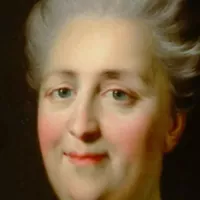
Catherine II or Catherine the Great ruled Russia from to...
CBS Broadcasting Inc CBS is a prominent American commercial broadcast...

Elvis Presley the King of Rock and Roll was a...

Christmas is an annual festival celebrated on December th commemorating...
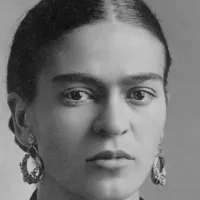
Frida Kahlo was a Mexican painter celebrated for her distinctive...
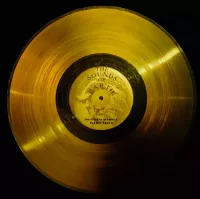
Music is a cultural universal involving the arrangement of sound...
Trending
15 minutes ago Rugby Property Assets acquires Cavendish Walk Shopping Centre in Merseyside for £1.5m.
1 hour ago Medvedev, Bublik, and Rublev advanced; Medvedev seeks rankings change in Dubai.
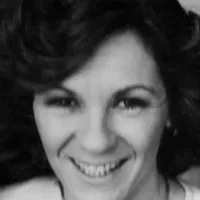
1 hour ago Lauren Chapin, 'Father Knows Best' Child Star, Passes Away at 80
2 hours ago Tim NeCastro Announces Retirement as Erie Insurance CEO After 10 Years

1 hour ago Scientists speculate on insights from government's UFO files release directed by Trump.

4 hours ago Apple MacBook Pro: Touchscreen, Dynamic Island, and New Interface Coming Soon.
Popular

Jesse Jackson is an American civil rights activist politician and...

Susan Rice is an American diplomat and public official prominent...

Barack Obama the th U S President - was the...

Michael Joseph Jackson the King of Pop was a highly...

XXXTentacion born Jahseh Dwayne Ricardo Onfroy was a controversial yet...

Bernie Sanders is a prominent American politician currently serving as...
